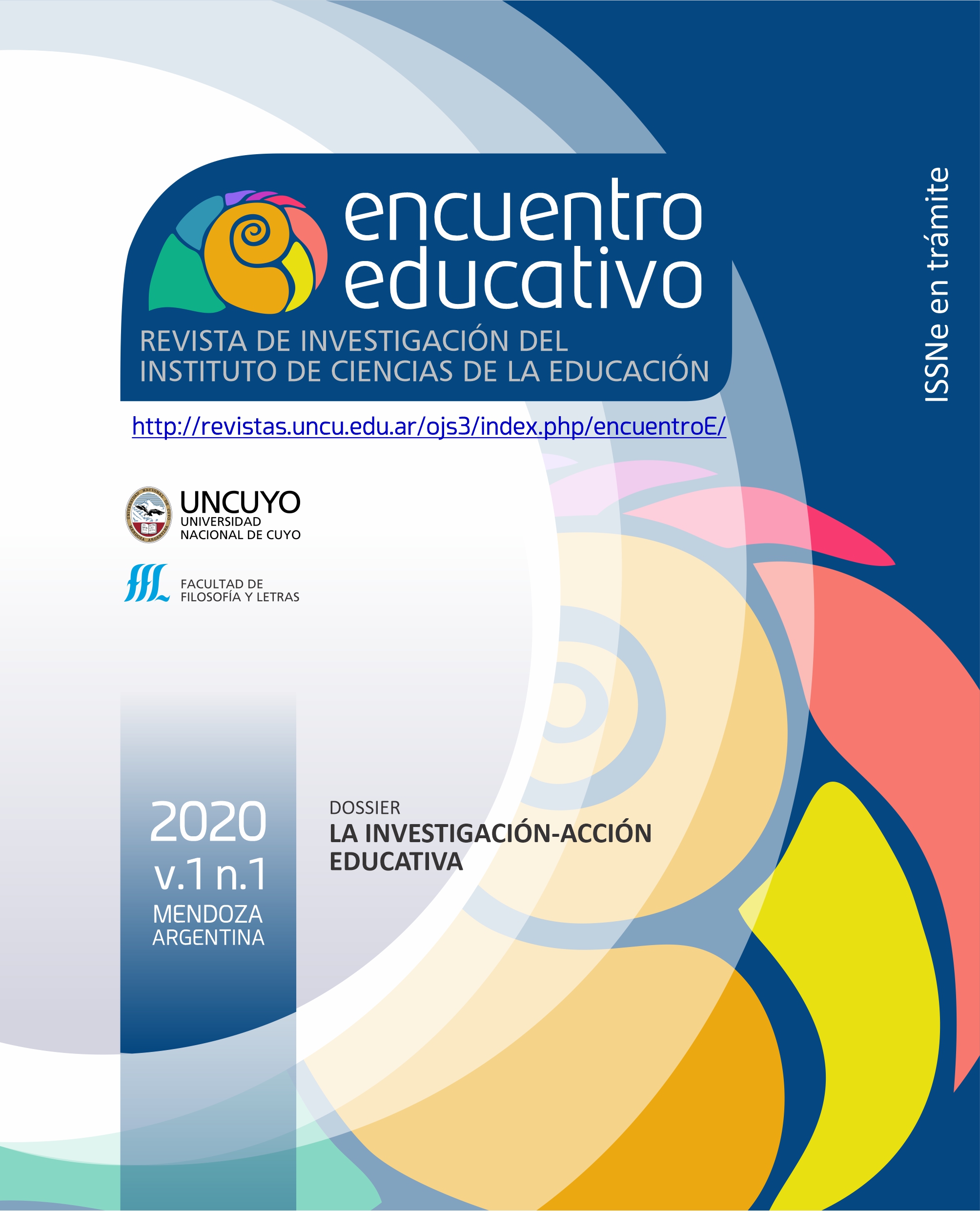Communicative and participatory school family relationship.
Proposal from participatory action research.
Keywords:
School-family relationship, methodological strategy, participatory research action, communication, pesquisa-ação participativa, participação, comunicaçãoAbstract
Different perspectives and ways of directioning educational programs oriented towards the school-society relations have gained space in school work. Developed from the science of education, the diverse programs assume the school-family relationship with holistic, multilateral, and multidisciplinary approaches. This work shows the outcome obtained from the implementation of a methodological strategy aimed at strengthening to improve the school-family relationship in the Cuban educational system, specifically in the upper secondary education level during the years 2010 to 2014 in the province of Pinar del Rio, Cuba.
The participatory action research constitutes the theoretical and methodological basis of the strategy proposed. The main positive aspects achieved with the implementation of the strategy were the increase in the level of participation of the subjects in the school, from their decisive involvement in the identification of problems and capabilities as well as in the participatory diagnosis, the conception and execution of the actions designed and implemented according to the problems that occurred both in the school and in the families of the subjects of the research. It was identified that students promoted reflection and critical thinking around issues of global relevance, such as the themes of preservation of culture and care for the environment.
References
Aguilar, N. J. (2019). Ciberactivismo y educación para la ciudadanía mundial: una investigación acción participativa con dos experiencias educativas de Bogotá. Palabra Clave, 22 (2) 1-31.
Arencibia, J. M. (2007). La relación escuela-familia en la enseñanza media superior en el municipio de Pinar del Río. (Trabajo de Diploma). Universidad de Pinar del Río, Cuba.
Basagoiti Rodríguez, M., Bru Martín, P. y Lorenzana Álvarez, C. (2001). La IAP de bolsillo. Madrid, España: ACSUR Las Segovias.
Campos, R. D. (2007). Estrategia Sociocultural de integración escuela-familia en el IPUEC Combate Tumbas de Estorino.(Trabajo de Diploma) Universidad de Pinar del Río, Cuba.
Castellano, A. M. e Hinestroza, J. (2017). La Investigación Acción Participativa (IAP): entre la vivencia y el compromiso. Interacción y Perspectiva: Revista de Trabajo Social, 7(2), 220-232.
Centro de Intercambio y Referencia Iniciativa Comunitaria (CIERIC). (2006). Propuesta metodológica para la gestión de proyectos. La Habana. Cuba: Centro de Intercambio y Referencia Iniciativa Comunitaria (CIERIC).
Consuegra-Ascanio, A. & Mercado-Villarreal, K. (2017). La IAP como alternativa metodológica para el cambio social: un análisis desde distintas perspectivas. Jangwa Pana, 16 (1), 90 - 102. Doi: http://dx.doi.org/10.21676/16574923.1959
Díaz Velázquez, E. &. (2012). Claves teóricas y metodologías para la investigación acción participativa (IAP). . En Metodología de la investigación social: técnicas innovadoras y sus aplicaciones. (págs. 153-177).Madrid.
Díez-Gutiérrez, E.-J. (2020). Otra investigación educativa posible: investigación-acción participativa dialógica e inclusiva. Márgenes, Revista de Educación de la Universidad de Málaga, 1 (1) 115-128.
Gonzalez, M. G. (2003). Desarrollo comunitario sustentable. Propuesta de una concepción metodológica en Cuba desde la educación popular. (Tesis en Opción al grado científico de Doctor en Ciencias de la Educación) Ciudad de la Habana, Cuba.
Gutierrez, T. M. (2004). El desarrollo del trabajo social en Cuba. profesionalización y práctica. En S. Manson, Trabajo social en Cuba y Suecia (pág. 45). Sancti Spiritus: Arcadía.
Hernández, B. R. (2005). Relación escuela familia en el sistema educativo cubano de los 90. Estudio de caso en el municipio Pinar del Río. (Tesis en Opción al grado científico de Master en Estudios Sociales) Universidad Pinar del Río, Cuba.
Hernández, B. R. (2013). ¿Qué es participar? ¿Cómo participar? En B. R. Hernández, & L. A. Ramírez, Lo sociocultural: Un trabajo pendiente (pág. 62). La Habana. Cuba: Ciencias Sociales.
Pérez, A. (2006). Estrategias de comunicación. Barcelona, España: Editorial Ariel Comunicación.
Botella Nicolas, A.M. y Ramos Ramos, P. (2019). Investigación-acción y aprendizaje basado en proyectos. Una revisión bibliográfica. Perfiles educativos, 41 (163) 127-141.
Romero, E. S. (2018). Investigación acción en educación, interrogantes y respuestas. En J. L. Pereira, Investigación Cualitativa Emergente: Reflexiones y Casos.













